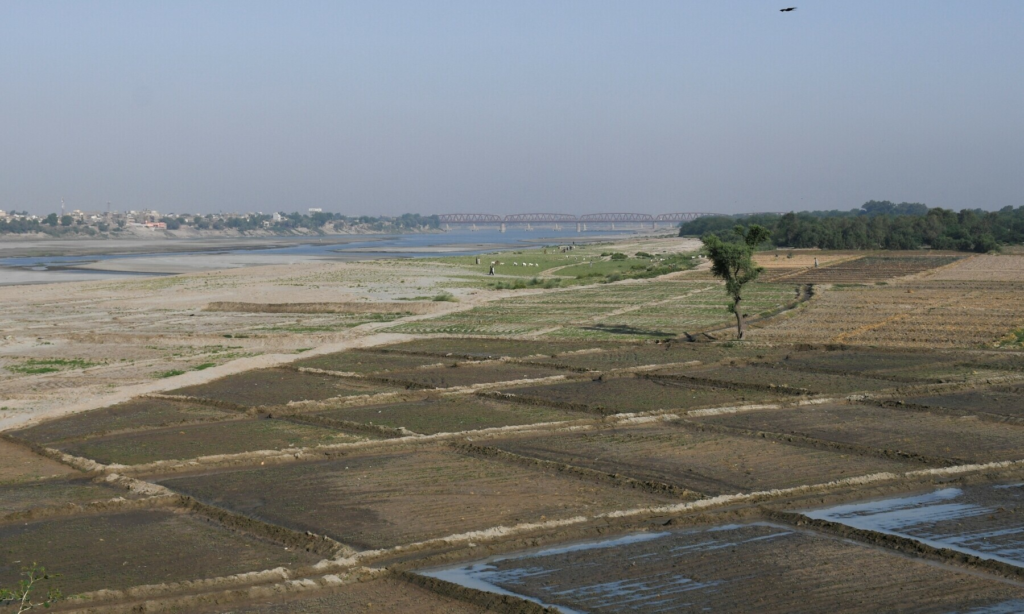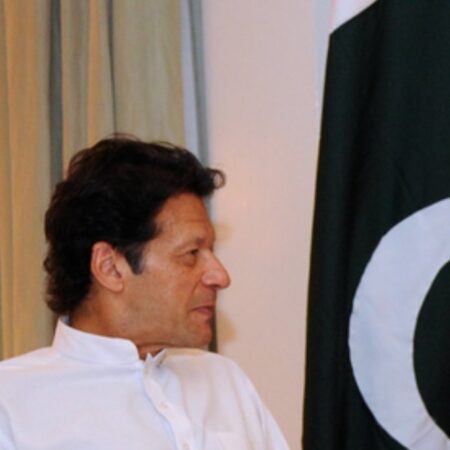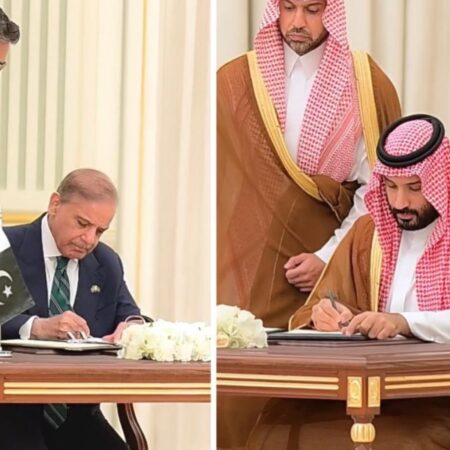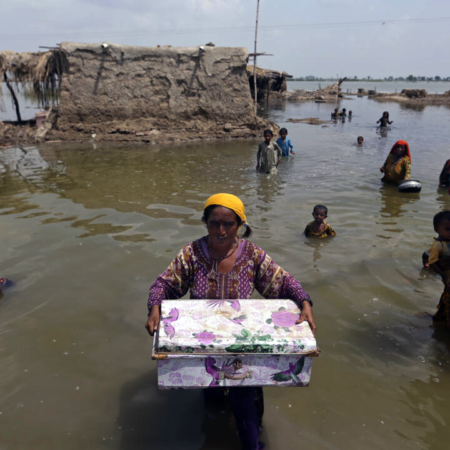As tensions between the two nations continue to rise in the wake of the Pahalgam attack, the Pakistan Army shot down an Indian quadcopter drone Tuesday close to the Line of Control (LoC) in Azad Jammu and Kashmir (AJK), according to official media.
One of the deadliest armed assaults in the disputed Himalayan region since 2000, the April 22 attack claimed the lives of 26 men, the majority of whom were tourists. Following an initial message claiming credit, Kashmir Resistance, also known as The Resistance Front, stated that it “unequivocally” denied involvement in the incident.
Pakistan has vehemently denied any participation, while India has suggested cross-border connections of the terrorists without providing any proof. Shehbaz Sharif, the prime minister, has demanded an impartial investigation into the event.
According to security officials cited by state-run Radio Pakistan and PTV News, “Pakistan has successfully shot down an Indian quadcopter along the Line of Control, thwarting a violation of its airspace.”
Security sources identified the area as the Manawar sector of the Bhimber region in AJK, where the “enemy attempted to conduct surveillance using a quadcopter.”
“This evil attempt by the enemy was thwarted by the Pakistan Army through prompt action,” the report continued.
“The incident is a clear testament to the vigilance, professional skill, and defensive preparedness of the Pakistan Army,” according to security sources.
The report stated that the entire country was “united with the armed forces to give a befitting response to the enemy on every front” and that the Pakistan Army was always prepared to respond quickly and effectively to any enemy assault.
Following four years of comparatively tranquil conditions, Indian and Pakistani troops are said to have exchanged gunfire along the Line of Control for the fifth consecutive night.
According to the Indian army, nighttime gunfire broke out between its troops and Pakistani ones. Pakistan did not immediately provide confirmation.
According to India, the shooting occurred in the Akhnoor sector and in the territories across from the Kupwara and Baramulla districts of controlled Kashmir throughout the course of Monday and Tuesday.
There were no casualty reports.
Khawaja Asif, the defense minister, stated yesterday that Pakistan was prepared for any Indian intrusion in the most recent round of this contentious discussion.
Because of the imminence of the situation, we have increased our forces. Therefore, certain strategic choices must be made in that circumstance, and those choices have been made,” Asif told Reuters.
Although he did not elaborate on his grounds for believing an invasion was near, he said that the military had informed the administration about the potential for an Indian strike.
Asif warned of a “war looming on the horizon” in an interview with Samaa TV. He then told Geo News that the “next two to three days were crucial.”
Indian leaders and others have also increased their calls for military action against Pakistan. According to analysts, they are concerned that aggressive remarks could turn into potential military action.
Aqeel Malik said Pakistan is getting ready to contest the suspension of the Indus Waters Treaty.
Aqeel Malik, Pakistan’s Minister of State for Law and Justice, told Reuters late Monday that his country is getting ready to file an international lawsuit against India for suspending the crucial Indus Waters Treaty (IWT).
Islamabad, according to Malik, was preparing preparations for at least three distinct legal avenues, including bringing up the matter with the World Bank, which facilitated the deal.
The Permanent Court of Arbitration or the International Court of Justice at the Hague, where it may claim that India has violated the Vienna Convention on the Law of Treaties of 1960, were among options it was exploring, he added.
Malik stated that the legal strategy consultations were nearly finished and that a decision regarding which cases to pursue would be made “soon.” This decision would probably involve pursuing multiple avenues.
A request for comment from Reuters was not immediately answered by India’s water resources officials.
Malik went on to say that bringing up the matter before the UN Security Council was Islamabad’s fourth diplomatic option.
“Every option is available, and we are seeking to approach all relevant and capable forums,” he stated. “There is not [such a] provision within the treaty that allows for unilateral suspension or abeyance,” he claimed.
The nuclear-armed states have launched a variety of actions against one another since the Pahalgam strike.
The IWT, a water-sharing arrangement mediated by the World Bank that has withstood wars and decades of animosity, was unilaterally suspended by India on April 23.
In response, Pakistan threatened to halt Indian flights in its airspace and put the Simla Agreement on hold the following day. “Any attempt to stop or divert the flow of water belonging to Pakistan […] will be considered as an act of war,” the National Security Committee (NSC) in Islamabad added.
Water from the Indus River and its tributaries, which supply 80% of Pakistan’s irrigated agriculture and hydropower, will be distributed and used according to the terms of the treaty.
“There are very limited options [for Pakistan],” Kushvinder Vohra, the recently resigned chief of India’s Central Water Commission, told Reuters. I can state that we have good reason to defend what we did.
Since the treaty only permits India to construct hydropower facilities without substantial storage or dams on the three rivers allotted to Pakistan, government officials and experts on both sides argue that India cannot instantly restrict water flows.
But in a few months, things might start to change, and farmers who are already suffering from water shortages brought on by climate change are worried.
Cyberattacks on the websites of ministries “foiled.”
According to Shaza Fatima Khawaja, Minister of Information Technology, attempts to launch cyberattacks on the websites of several departments were thwarted.
In response to a question regarding Indian cyberattacks yesterday, Khawaja stated: “We effectively guarded against [cyberattacks] that targeted certain departments. There was no major problem.
At her ministry’s Islamabad office, she assured reporters that there was no cyberattack on the IT ministry’s website and that “they were resolved timely.”
The National Cyber Emergency Response Team (N-Cert) and its provincial counterparts were operational, Khawaja emphasized.
Recalling the Top Tier-1 rating in the ITU-Global Cybersecurity Index (GCI-V5) 2024, the minister noted that Pakistan had been listed among the top nations in cybersecurity the previous year.
Regarding the Pahalgam attack, she said Pakistan has consistently called for peace and denounced terrorism.
Regarding the present tension between India and Pakistan, Khawaja stated, “It is not in anyone’s interest for the situation to escalate.”
N-cert, which is in charge of safeguarding vital digital infrastructure, issued a warning to media and content producers yesterday about the dangers of disseminating private national security data.

An “increase in the dissemination of videos, photos, and commentary exposing troop movements, military deployments, and sensitive national security activities” on social media and public platforms was mentioned in the advice.
“Whether unintentional or deliberate, such disclosures may seriously jeopardize operational effectiveness, undermine national security, and enable hostile actions by adversaries,” N-cert stated.
According to the caution, sharing sensitive information could lead to a security breach since it would reveal the whereabouts and movements of soldiers.
During a security review, India closes more than half of the tourist attractions in Kashmir.
In an effort to increase security following the attack on vacationers last week, the government ordered Tuesday that more than half of the tourist attractions in India-occupied Kashmir (IoK) be closed to the public. Reuters examined the decision.
26 people were killed in the Pahalgam area when the attackers separated males, asked for their identities, and specifically targeted Hindus before shooting them at close range, according to survivors and officials.
According to the government document, the local government has made the decision to close 48 of the 87 tourist attractions in IoK and increase security at the others.
There was no time frame specified. Requests for comment from Reuters were not immediately answered by government representatives.
With its majestic valleys, high peaks, and expansive Mughal-era gardens, the Himalayan region has been gaining popularity as a travel destination in India since the level of violence has decreased recently.
However, at the beginning of the bustling summer season, tourists are in a panic due to the Pahalgam incident and are looking to leave early.
UAE supports engagement between Pakistan and India
In the meanwhile, following the Pahalgam incident, the United Arab Emirates joined other nations in highlighting the significance of “promoting dialogue” to ease tensions between bitter foes India and Pakistan.

The Foreign Office (FO) said on X that Sheikh Abdullah bin Zayed Al Nahyan, the UAE’s deputy prime minister and foreign minister, spoke with his Pakistani colleague Ishaq Dar over the phone about issues of mutual concern and the current regional situation.
The National Security Committee of Pakistan made choices last week in reaction to “India’s unfounded allegations, inflammatory rhetoric, and unilateral actions,” Dar informed the UAE official.
According to the FO, the deputy prime minister of the United Arab Emirates “emphasized the importance of upholding regional stability, promoting dialogue, exercising restraint, and peaceful resolution of disputes.”
“Both leaders pledged to continue close coordination and consultations in light of [the] changing regional situation, reaffirming the strong fraternal ties between Pakistan and the UAE.”
Additionally, according to the FO, both deputy premiers reaffirmed their nations’ commitment to “enhance bilateral cooperation and advance shared objectives of peace, stability, and sustainable development.”
The United States, the United Kingdom, China, Turkiye, and Qatar are among the friendly nations and international powers that have also worked to defuse the tensions between India and Pakistan.

The two sides should “exercise restraint, meet each other halfway, properly handle relevant differences through dialogue and consultation, and jointly maintain regional peace and stability,” China said yesterday.
Anadolu Agency said Monday that Recep Tayyip Erdogan, the president of Turkey, also demanded a prompt de-escalation of the developing conflict.
Following a cabinet meeting in Ankara, Erdogan declared, “We want the escalating tensions between Pakistan and India to be de-escalated as soon as possible, before they evolve into a more serious situation.”
He emphasized, “Turkey continually emphasizes that we do not want new conflicts in our region and beyond.”
To ensure that disputes are “resolved peacefully through meaningful mutual engagement,” the UN has called on the bitter rivals to exercise “maximum restraint.”
Saudi Arabia has stated that Riyadh was attempting to “avoid an escalation,” and Iran has already volunteered to mediate. On Friday, US President Donald Trump played down tensions, claiming that the conflict will be “figured out, one way or another.”












No Comment! Be the first one.